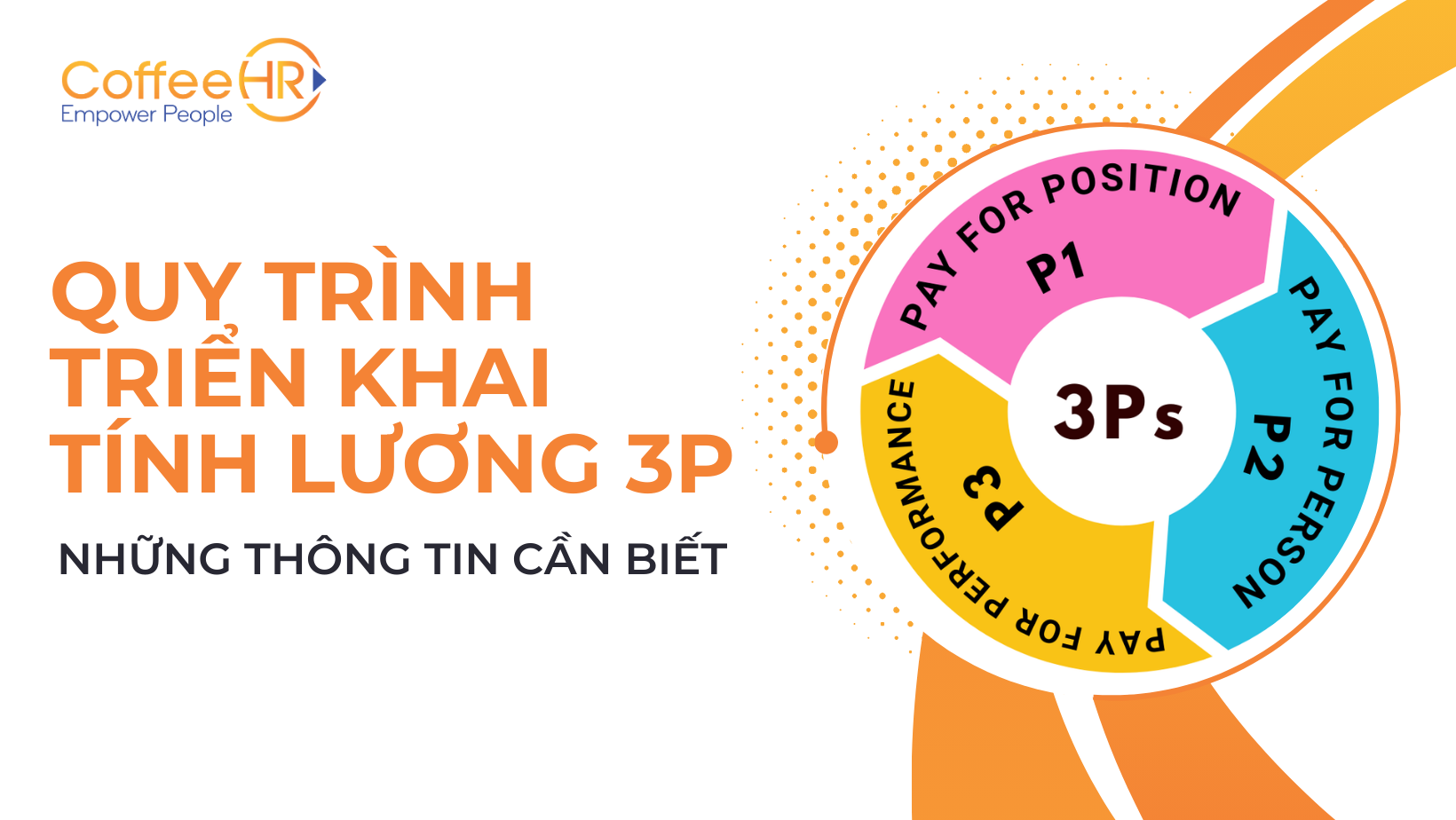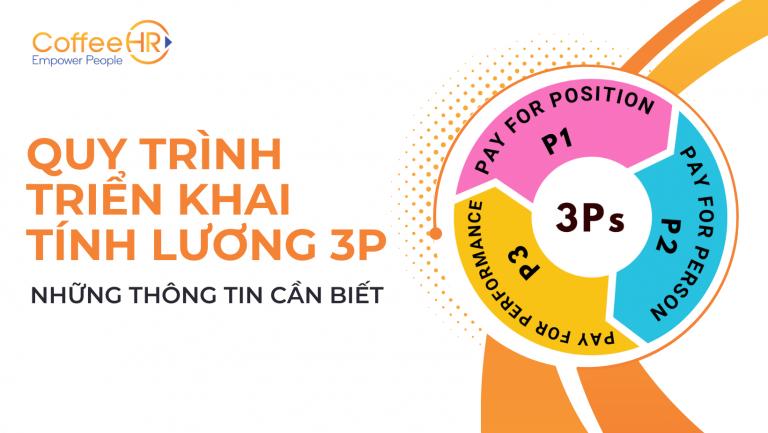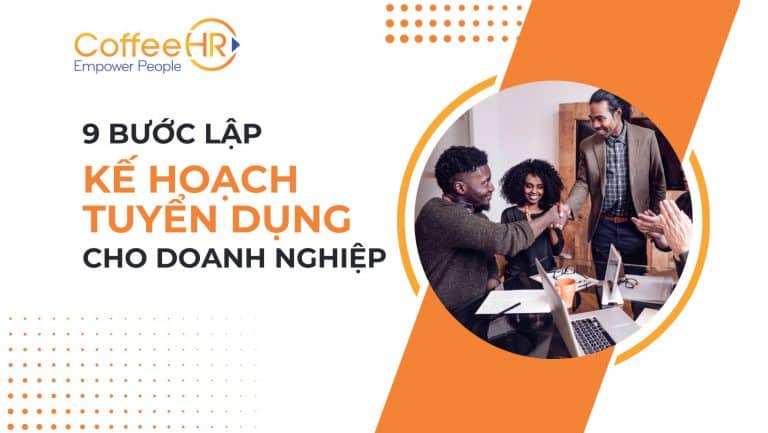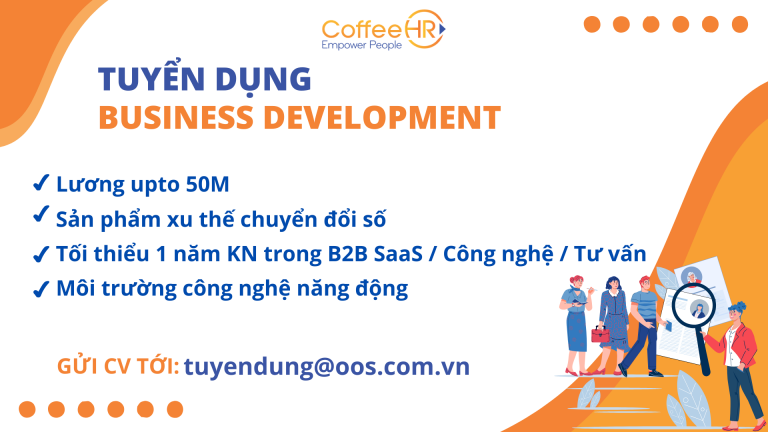An employer owns his own job interview skills Professionalism will be the premise to promote the process of recruiting talent for businesses. So let CoffeeHR tell you about these important skills.
The important role of job interview skills
For recruiters:
The interview is efficient, allowing the employer to determine the candidate's skills, experience, and personality. These are essential elements that demonstrate the ability to meet the requirements of the job and the company's culture. This will be the best way to help employers limit the problem of hiring the wrong person, reducing the loss of long-term costs.

For applicants:
For candidates, an effective interview will be a condition for them to better understand their job needs, desires and suitability for the recruiting company. Thus, for the above reasons, the employer needs to invest in building a plan to improve job interview skills.
3 Common types of recruitment interviews
To become proficient in job interview skillsInterviewers need to know three types of interviewing methods:
- Telephone interview

The form of interview by telephone exchange is considered as the first step to evaluate the candidate's qualifications, experience, skills and desired salary. This shows whether they are a good fit for the vacancy and the business. From there, employers will screen candidates who are invited to face-to-face interviews.
- Direct one-on-one interview
One-on-one interviews can be structured or unstructured. This depends on the type of information businesses are looking for. Some of the approaches used in this type of interview are behavioral, situational, and competency-based.

- Group interview
The group interview format means that the employer will arrange to interview a group of candidates at the same time. Or, a candidate will speak directly to a recruitment panel of two or more people. It is easy to see that when many people participate in the process of interviewing and evaluating candidates, the recruitment process will ensure greater objectivity.

" Do not miss: 11 Interview method Effectiveness recruiters should know
3 Things to prepare before the interview
For HR professionals, preparation is essential for efficiency and improvement job interview skills. The most important thing is to know what you are looking for in an interviewee.
Know the position you need to recruit
To develop job interview skills, the preparation of a detailed job description (Job Description - JD) is indispensable. It will indicate the necessary requirements that the candidate must have. However, not all recruiters have expertise in the position being recruited, the solution is to discuss with the main person in charge and give them exactly what they want.

Specifically, the HR specialist received a request to recruit sales staff from the sales manager. Discuss with the manager what they want from the candidate.
Understanding the job characteristics of the position is essential before posting the job posting. The first thing to do is to research in detail the skills and qualities that are suitable for the position, as well as the daily tasks and KPIs to be achieved. In addition, make sure all members of the recruitment department understand and agree with those criteria.
Filter candidates
Identifying specific questions is essential to getting the interview started. This is to assess whether the candidate's qualities are relevant to the job or not.
When holding the application form in hand, it is necessary to carefully study its contents. If possible, score each candidate based on the requirements in the job description.
Contact candidate for interview
Calling candidates during a break in the middle of the day or at night is especially taboo job interview skills.

Before discussing with candidates, employers need to prepare clear and complete information with main ideas. Fully conveyed messages will make candidates interested in the company and the position they are recruiting for. This requires that the employer, whether experienced or not, also needs to practice first.
For the voice, it is necessary to practice the voice first to have a strong, easy-to-listen voice. Blame the situation of using local sounds, making it difficult for listeners to understand.
Frequently asked job interview questions
A careful recruiter will always prepare the content to exchange with candidates in the interview. Usually, groups of interview questions will include the following types of questions:
General question

General questions are questions related to the candidate's experience, position, reason for applying, .. The purpose of these questions is to verify the information on the CV, and know the reason. causes them to apply. Commonly asked questions are:
- How long did you work at your old company? What is your main job?
- What information do you know about our company?
- Why are you applying for this position?etc…
Behavioral questions
With employers who have job interview skills High, behavioral questions not only help confirm the information on the CV, but also better know the working style, how the candidate solves problems in the previous job or in life. Some behavioral questions commonly used by employers include:
- What was the biggest challenge you faced at your old job?
- How do you deal with problems at work?
- What was the biggest project at your old company that you worked on?
- What important position have you held?
- What work experience have you gained from those positions?
In addition, instead of asking questions related to previous work, employers can also give certain situations to assess the problem-solving skills of interviewees, such as:
- Colleagues cheat in financial matters, what will you do?
- You were assigned a task that needed support from another colleague who had a previous conflict, how would you resolve this issue?
- When you are the boss of “stubborn” employees, how will you coach their skills and change their mindset?
Pressure question
For senior and important positions, businesses often use the form of pressure questions. The purpose of this type of question is to test and assess the candidate's ability to work under pressure, problem-solving skills and creative thinking. The more important the position is, the higher the question is, in order to select the best candidate.

In pressure questions, trick questions like “How do I drop an egg on the floor without breaking it?” will reduce the atmosphere of stress and help employers evaluate the creative thinking of candidates.
Probe question
When a candidate's answers do not meet the employer's expectations, follow-up questions (also known as probing questions) are necessary to dig deeper into the information. some. Specifically:
- Can you tell me more about… ?
- Do you have an example of what you just presented?
- My understanding is… So is what you are saying right?
Hypothetical question
Questions in the form of simulated situations are asked by many employers to test how candidates react and handle. The purpose of the hypothetical question is to assess the candidate's problem-solving ability. Frequently asked questions in this type of question are: how to deal with conflicting colleagues working on a project, how to handle customer complaints in specific situations, etc.
Self-assessment question
The best way for interviewees to express themselves is to let them evaluate themselves. Self-assessment questions are the types of questions that employers should suggest to candidates, so that they can see for themselves their strengths and weaknesses, past experience and abilities.

Thus, preparing a set of questions in advance is very necessary job interview skills. However, the employer should also not be too restrictive on the list of answer ideas. Because most candidates will not be able to answer exactly the way the employer thinks. Therefore, focus on remembering the good qualities of the right candidate.
" Looking for more information: 10 Set of interview questionsBest n for recruiters
5 steps recruitment interview process
The interview process can sometimes be stressful for both the interviewer and the candidate. So, as an employer, apply job interview skills professionals to create a comfortable environment, helping candidates not be suffocated when participating in the interview. When feeling relaxed, candidates will show their true ability. From there, the employer will get the most objective assessment and better understand the candidate's personality.

For the purpose of ensuring objectivity in the selection of candidates, the enterprise will arrange more than one interviewer according to each situation. Besides, this is also a way to improve interviewing skills for stakeholders. Specifically, the stages in the interview process will include:
- Start the interview: In order to have a comfortable interview, the employer should initially exchange information on the sidelines. This will reduce stress on both sides.

- Exchange information with candidates: The basic information about the duties, roles and requirements of the vacancy should be presented in an easy to understand manner. In addition, it is also possible to introduce other information about the company to the candidate.
- Ask interview questions: Let's start from general questions to behavioral questions and then difficult, pressured questions. From there, employers will get the most accurate assessment and screening of candidates.
- Summary and evaluation: After creating conditions for interviewees to ask questions, the employer needs to summarize the information that the two sides have exchanged, thank the candidate for participating in the interview and finally notify the time. results are expected.
- Check after interview (if needed): In some cases, employers will be able to request additional small tests. This can be a personality test (Predictive Index - PI) or a real case study (Case study) with the aim of more accurately assessing the candidate's attitude and ability.
Optimizing the Recruitment Interview Process to find the best candidate
Interview topics
Here are some interview topics that employers have job interview skills Good often mentioned in the process of communicating with candidates:
- Expertise: Focus on asking candidates about the knowledge and understanding of the profession or field of the vacancy. In addition, certificates or degrees in the candidate's area of expertise can also be the subject of the interview.

- Work skillSome important skills that need attention are problem solving skills, thinking skills, decision making skills, planning skills, goals, etc.
- Motivation: It is necessary to delve into the factors that motivate the candidate to want to work and contribute to the business, and the specific actions that the candidate will take when being accepted.
- Understanding people: The personality, career orientation, working culture, adaptability, ... of the candidate are the factors that help the employer understand and determine whether the candidate is suitable for the position being recruited or not. .
- Leadership capacity: When mentioning this topic, recruiters will see if the candidate has leadership ability, management style and teamwork.
The art of listening during an interview

In order to ensure an effective and meaningful interview, recruiters not only focus on questioning skills, but also on listening skills.
“Hearing is one of the body's five senses. But listening is an art.”
– Frank Tyger –
Most of us tend to pay more attention to what we say than listening to others. Thus, no one can pay attention to everything around, easily forget something. Therefore, a good recruiter always needs good listening. And to have an effective interview, the interviewer needs to apply this in job interview skills. Here are some tips to help improve your listening:
- Limit distractions both internally and externally, and focus fully on what the candidate is saying. For example, the interview takes place in a quiet place.
- Listen fully to the answers and then ask questions.

- Clarify the candidate's response if necessary, proactively asking if they need more information. The employer may consider restating the candidate's answer in his own words.
- Pay attention to the facial expressions and body language of the person being interviewed.
Build a candidate evaluation system
Whether the interview is effective or not depends a lot on the interviewer. Therefore, it is necessary to have a common system for evaluating candidates through each process.
- The process of notes and reviews
- Focus on what the candidate is saying. Besides, observe the body language, facial expressions when they are answering.
- Don't try to take notes while the candidate presents, this can be done after they have finished answering.

- With a panel interview, other members should take note of the questions the candidate is answering, while still listening attentively and aware of the candidate's gestures.
- Each member should score the interviewee according to each criterion as it happens. Because after 45 minutes, no one will remember the previous answers. Ideally, the interview panel should discuss each candidate as soon as they leave, to match the score with the criteria set out.
- Evaluation after interview
- Because of personal bias or other factors, the evaluation of candidates after the interview often does not bring enough objectivity. Therefore, it is necessary to consider using a common scoring system.
- Avoid comparing candidates with each other before comparing the overall score scale. This should only be done when there is a plan to close the number of candidates.
Some notes on job interview skills
To increase efficiency in talent search, interviewers need to take notes and job interview skills.
- Research candidate's profile before interview: Besides the resumes, CVs, interviewers can research about candidates' profiles on social networking platforms such as Facebook, Linkedin, etc. to better understand their personality and capabilities.

- Prepare questions: The stage of preparing questions in advance is not superfluous if the employer wants to choose the most suitable candidate. However, do not rely too much on the prepared list of questions. Instead, be flexible in asking open-ended questions to get more information about the candidate.
- Friendly and cheerful attitude: Creating a comfortable interview atmosphere will be very important, this will make the candidate open and comfortable to share more information.
- Note: Note-taking is essential when interviewing many people. The more information that is recorded, the easier and more accurate the decision will be.
- Motivation: It is necessary to delve into the factors that motivate the candidate to want to work and contribute to the business, and the specific actions that the candidate will take when being accepted.
- Understanding people: The personality, career orientation, working culture, adaptability, ... of the candidate are the factors that help the employer understand and determine whether the candidate is suitable for the position being recruited or not. .
- Leadership capacity: When mentioning this topic, recruiters will see if the candidate has leadership ability, management style and teamwork.
With information and notes about job interview skills that Coffee HR shared will be really useful for employers who aspire to find talent and build quality staff.
Contact now CoffeeHR to receive FREE DEMO Optimal management solution for your Business.
Hotline: (+84) 97 306 0459
Facebook: CoffeeHR – HR Coffee






















